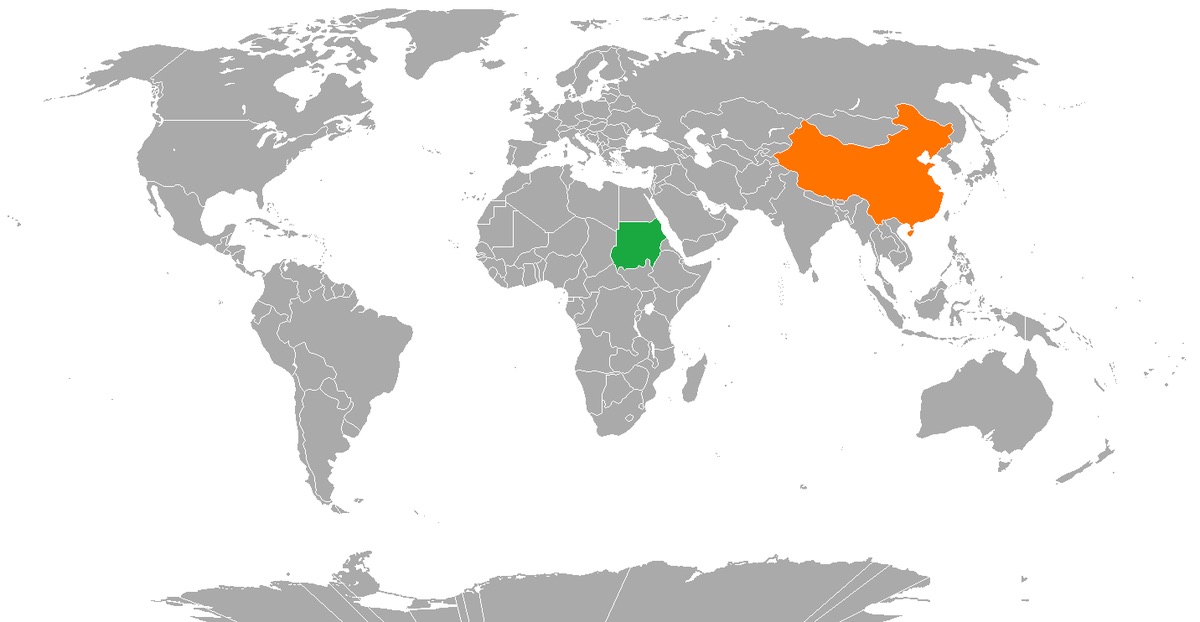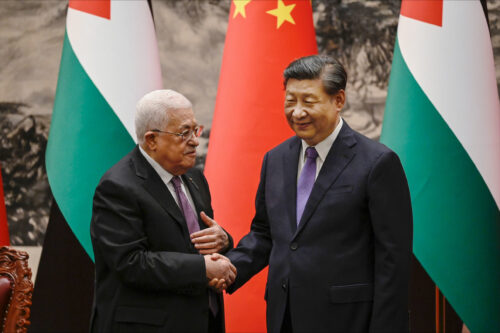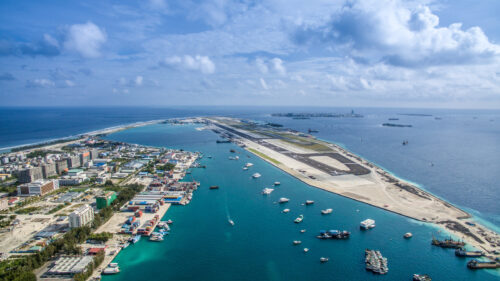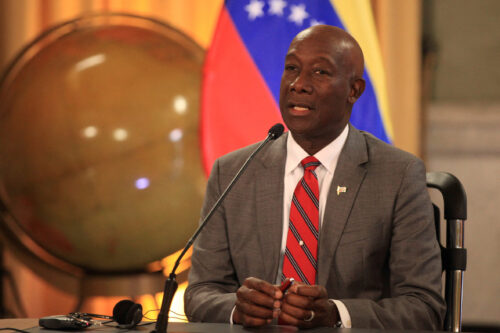In this new weekly explainer series, China Ties, we look at China’s relationship with different countries of the world.
On April 15, all hell broke loose in Khartoum. The Rapid Support Forces fought the Sudanese army street to street for control of the capital and government. It was right on the doorstep of China National Petroleum Corporation’s (CNPC) offices, a fabulously wealthy state-owned conglomerate that built Sudan’s oilfields, pipelines, and processing plants.
Now they were in the middle of a war zone. If their own retelling is anything to go by, company employees hunkered down for nine days in a basement before evacuating, leaving infrastructure in the hands of local caretaker partners.
Sudan’s history is turbulent — only around 10 years of the nation’s past have been free of civil war and rebellion since its independence in 1956. That’s a lot of uncertainty for a country that in the early 2000s was producing up to 9% of China’s oil imports.
So in Sudan, China’s non-interference policy seemed about as sensible as watching while your valuables char in a burning building. In times gone by, China’s relationship with Sudan was so important that a president once flew all the way to Khartoum to calm political storms.
Not anymore. “China and Sudan are known to have an all-weather friendship,” says Luke Patey, senior research for the Danish Institute for International Studies and author of The New Kings of Crude: China, India and the Global Struggle for Oil in Sudan and South Sudan. “But it’s stormy now in Sudan, and so far, Beijing is nowhere to be seen.”
Sudan
Date of founding: January 1, 1956
Population: 48.1 million
Government: Constitutional democracy (de jure), Military Dictatorship (de facto)
Capital: Khartoum
Most populous city: Omdurman
Established relations with China: 1959
Sudan established diplomatic ties with China on January 4, 1959, and signed numerous trade agreements in the 1960s and 1970s. The ties were strong — strong enough for Beijing to even support President Jaafar Nimairi’s suppression of the Sudan Communist Party in 1971.
Oil has been the name of the game for decades — China eyeing the vast reserves in the country’s sub-Saharan south. American loss was China’s gain: civil war in the 1980s drove out American oil investors, the U.S. government shutting out U.S. investment completely with sanctions in the early 1990s for Sudan’s friendly relations with Al-Qaeda.
It drove Sudan into the arms of China, who agreed to develop their oil sector in 1995. For CNPC, which knew its domestic oil supply would soon dry up, “It was an opportunity to exploit sizable oilfields and cut their international teeth,” says Patey.
Backed by Chinese diplomacy, CNPC led the way in drilling and building wells, setting up a pipeline nearly a thousand miles long from the oilfields in the south to Port Sudan on the Red Sea. China became Sudan’s biggest trading partner, while by the early-2000s Sudan briefly became China’s main oil supplier in Africa.
America’s loss was China’s gain…China became Sudan’s biggest trading partner, while by the early-2000s Sudan briefly became China’s main oil supplier in Africa.
Being a foul-weather friend bolstered China’s opportunities in Sudan, but also endowed Sudan with much-needed international support. China argued against international intervention over President Umar Hassan al-Bashir’s brutal suppression of rebels (including burning civilian homes, slaughtering civilians, and raping women) in the western Darfur region, frequently abstaining during UN security council votes to intervene.
But in 2007 — under international pressure and fearing boycotts of the 2008 Olympics — President Hú Jǐntāo 胡锦涛 visited Sudan, quietly telling Bashir on February 2 to allow UN-Africa Union peacekeeping missions into Darfur, and to end the conflict. Hu sweetened the deal by canceling some of Sudan’s debts and signing a $13 million interest-free loan for an office space in the Presidential Palace. As the Chinese ambassador to the UN put it a few days later, China “never twists arms,” but Sudan “got the message.”
Even so, chaos continued, sometimes jeopardizing Chinese workers, nine kidnapped in October 2008 in an oilfield near Darfur. There were still risks, but the oil was worth it.
But all that changed in 2011, when three-quarters of the oil went to newly-independent South Sudan. Sudan’s oil exports to China plummeted by over 80%. “As a result,” writes Dr. Laura Barber in a U.S. Institute of Peace report in 2020, “China’s economic interest in Sudan shifted from its energy resources to its potential as a participant in President Xi’s expansive Belt and Road Initiative.”
So investment still comes in, for railways, cotton, and goldmines. A 2018 initiative by China involved building a nearly 2,000 mile-long railway from Port Sudan to N’Djamena, the capital of Chad; Barber assigns this as part of a long-term Chinese plan to link Africa’s east and west coast.
But any diplomatic involvement in Sudan’s problems was now to protect its pipeline with South Sudan. When conflict broke out between the Sudans in 2012, China attempted shuttle diplomacy, another rare case of China officially interfering in another nation’s domestic issues. But, according to Patey, their failure to prevent a breakdown in the Sudans’ relationship “may be why Beijing has decided to let others do the heavy lifting” this time around.
Meanwhile, the debts have piled up. The Financial Times reports Sudanese debts to China currently stand at $5.12 billion in early 2022, which doesn’t even include debts to be repaid with Sudanese oil — much of this already in arrears.
So it’s unsurprising that Sudan has come to China’s aid multiple times, becoming one of many signatories for a 2019 letter to the UNHRC praising China’s human rights record, and also backing China’s National Security Law over Hong Kong in 2020.
But it seems unlikely that China has enough at stake these days to come to Sudan’s aid the same way it did in 2007. Most of the Chinese workers during the boom years had vanished long before this latest civil war. As for CNPC, Patey says Sudan has already bought it out of most of their pipelines — and the company hasn’t invested in Sudan for over a decade. “[CNPC] doesn’t have much left to lose.”








